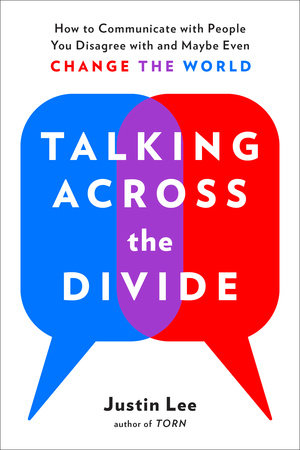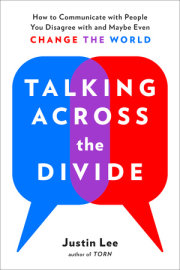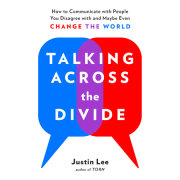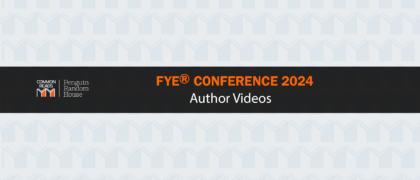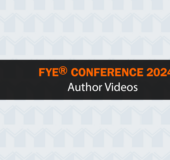Chapter 1
Echo-Chamber World
Physically speaking, we can not separate. We can notremove our respective sections from each other nor build an impassable wallbetween them. A husband and wife may be divorced and go out of the presence andbeyond the reach of each other, but the different parts of our country can notdo this. They can not but remain face to face, and intercourse, either amicableor hostile, must continue between them.
—Abraham Lincoln, 18611
We are a nation divided.
Turn on the TV or hop online, and it doesn’t take long tosee evidence of our polarized mentalities. We disagree on race and religion, onscience and social issues—but we don’t just disagree; we’re baffled by eachother’s views, and we have no idea how to get through to one another. Partisanbickering has created a gridlocked government that struggles to get even widelysupported things done. Important scientific research is being stalled bycompeting groups’ agendas. Culture wars are fracturing our families and tearingour communities apart.
“It’s like we live on different planets,” my friend Ryansaid to me the other day.
He was talking about a rift between him and members ofhis family. They’d been close at one time, he told me. But in recent years,they’d found themselves more and more often on opposite sides of culturalbattles. They were bitterly divided by national politics, by matters of faithand morality, and by shifting cultural views on a variety of issues.
Ryan wanted to be able to sit down with his family andtalk through their differences—to help them understand where he was coming fromand to hopefully change their attitudes on the issues that mattered most tohim. But every time he tried talking to them, he just wound up frustrated.Their views didn’t make any sense to him, his didn’t make any sense to them,and every conversation seemed to wind up in an argument. Their communicationwas breaking down somewhere, and the rift between them was widening into anuncrossable chasm. Ryan had eventually fallen into the habit of swallowing hisemotions and trying to “make nice” at family events, but it was eating away athim. He couldn’t help wondering what could have happened to cause the people heloved to be so stubborn and to see the world so differently.
And Ryan’s far from alone. I’ve spent twenty yearsfocusing on divisive issues in our society, and in that time, I’ve metthousands of people just like him—people whose families, churches, communities,and workplaces are being torn apart by controversy and conflict, each sidebaffled by the other, each pointing to different “facts” and making differentassumptions. It is, as Ryan says, almost as if we live on different planets.
Competing ideas have always been part of the American wayof life. Our political system is built on contests between differing ideas, andour Constitution reflects the hard-fought compromises of founders who did notsee eye to eye on everything. But those compromises wouldn’t have happenedwithout communication across lines of disagreement, and our politicalmarketplace of ideas begins to fall apart if we’re hearing completely differentversions of the truth from completely different sources. For this “Americanexperiment” to function, we have to be able to talk to one another.
But our attempts to communicate are failing, and nowhereis this more obvious than in the current state of American politics. Since1994, the Pew Research Center has studied America’s political polarization, andin that time, the value divide between Republicans and Democrats has only grownlarger. In 2017, Pew found the largest partisan divide in the history of theirresearch—a value gap nearly 250 percent as large as it had been.2 Meanwhile,hostility between the parties has skyrocketed.3 Fewer of us are moderate than everbefore, and as we drift toward the left or the right, most of us who identifyas either Democrats or Republicans report that we have “just a few” or no closefriends in the opposing party.4
Ultimately, though, our political troubles are only asymptom of the underlying disease. An us-vs.-them mentality is taking over ourpublic and private lives. Increasingly, we take our disagreements not to thepeople we disagree with but to our own echo chambers—spaces where we can talkabout, rather than to, the other side—where like-minded people echo our ownbeliefs right back to us. Our opponents, too, are stuck in their own echochambers, having their beliefs reinforced by people on their side rather thanbeing encouraged to consider what we have to say. That’s a problem, becausesome of our biggest challenges as human beings require working together.
A Foot on Each Side of the Divide
My own interest in this problem began with the issuesclosest to me.
I grew up on a cultural battle line; I don’t rememberever not being aware of the culture wars. I was raised in a conservative,evangelical Christian family, with a faith that has stayed with me my entirelife. I learned from a young age that my church held certain views on a varietyof controversial issues, and I quickly embraced those views as my own—includinga staunch opposition to homosexuality. As a teenager, I tended to lecture myfriends on these issues, earning me the nickname God Boy, a badge I wore withpride.
But puberty brought complications. I wasn’t attracted togirls like my male friends were; I was attracted to guys. At eighteen, Ifinally had to admit to myself that I was gay, a realization that turned myevangelical life upside down and forced me to rethink a lot of what I thought Iknew about gay people. As I struggled to make sense of all the new information,I increasingly felt trapped between two worlds. And in college, when I madesome gay friends for the first time, it was easy to see how far apart these twoworlds were. My gay friends didn’t understand my evangelical friends andfamily, and my evangelical friends and family didn’t understand my gay friends.It was, indeed, as if we lived on different planets.
I began speaking and writing about this faith-sexualitydivide, and soon I was hearing views on the subject from frustrated people allacross the spectrum. I started a nonprofit that worked successfully for sixteenyears to bridge the divide and bring families back together that had been tornapart by their disagreements. My first book, Torn: Rescuing the Gospel from theGays-vs.-Christians Debate, resulted in a flood of letters to me from parents,pastors, and others telling me that I had completely changed their opinion onthe topic. There was an advantage, I realized, to being caught between worlds:It made me culturally bilingual.
Meanwhile, as I worked to bridge that divide, I foundmyself in the middle of many others. I was called in to consult withconservative faith leaders and progressive social-justice activists. I spoke tocrowds in rural towns and booming metropolises, in red states and blue. I gotto see the inside of other people’s echo chambers and to hear what they saidwhen “the other side” wasn’t present—and hours later, I might be in a room ofpeople on that other side, listening to them do the exact same thing. Theissues these groups raised weren’t just about faith and sexuality. They wereabout race and gender, guns and abortion, personal struggles and publicpolicy—and all sorts of other issues that divide us. These are issues we can’tafford to get wrong, and yet I watched as these groups consistently struggledto get through to one another.
We each have issues that matter most to us. You may notbe passionate about the faith-sexuality divide like I am—you might evendisagree with me entirely—but you have your own positions and issues that areimportant to you. Maybe there’s a political or social topic you’d really liketo change some people’s minds about. Maybe it’s a religious disagreement oreven a personal squabble affecting people close to you. But while the specificsof our issues may be different, the principles of communication and change arethe same. We need to be able to communicate across our lines of disagreement,but instead, we keep ending up in fights that go nowhere.
Theoretically, we’re all fighting for the truth as we seeit—and that’s reasonable! We should do our best for truth, justice, andgoodness. Ironically, though, as we fight one another over the truth, the truthis what’s being lost. In an echo-chamber world, objective truth carries lessweight than truth-as-defined-by-my-social-circles.
What’s Led to This Polarization?
In an internet age, it seems like we should be moreconnected than ever. But in some ways, the very technology that now connects usaround the world may be at least partly to blame for pulling us apart.
Before the internet, our social circles were muchsmaller. Consider someone living in a rural area in the 1950s. Their optionsfor socializing would be mostly limited to their family, their neighbors, andpeople they knew from school or work. This made it important for that person tofind ways to resolve any disputes that arose within those social circles,because without those circles, there weren’t a lot of other people to spendtime with.
The internet has changed that.
In some ways, that’s a really good thing. As a gay teenin an evangelical family, I felt very alone and isolated until I found supporton the internet. Lots of people with unique needs or interests have foundcommunities of their own online or even used the internet to find like-mindedlocals whom they might never have met in their usual social circles. I love thepower of the internet to connect people.
But it also comes at a cost. Social media apps make itpossible for us to build vast networks of friends and then unceremoniously droppeople from our lives the moment we have a dispute. If the person sittingacross the table from me says something to irritate me, I can whip out myphone, fire off a message, and get instant sympathy and support from friendsaround the world who will assure me that of course I’m right, and I don’t needthat person’s drama in my life anyway.
And yes, it’s great to get support when something badhappens. Sometimes we do need others to encourage us to get away from a bad orabusive relationship. But this also makes it easy for us to give up too quicklyon resolving disputes with people who simply see things differently from us.
If you don’t agree with my politics, my identity, or myview of the world, I can easily block you or push you away and spend more timewith the social circles who affirm what I already believe. That constant streamof approval is intoxicating and addictive. And we don’t just get it on socialmedia. We choose news sources, places of worship, and even forms ofentertainment that affirm our existing views and demonize those people outthere. Before we know it, we’re living in echo chambers where we hear the sameperspectives over and over and over, all of us reinforcing one another in thesense that we are the chosen ones, we are the “good guys,” and the people outthere who would oppose us are the enemy.
And it’s not that we never interact with those people—ofcourse we still do—but we find them making less and less sense to us. We justdon’t get them anymore. They seem incredibly out of touch with reality as weand our social circles know it to be.
And one day, we wake up to find that we’re so far apartthat we don’t even know how to talk to one another anymore.
And we wonder when they got like this.
Us-Colored Glasses
It’s not just the conscious choices we make that areseparating us from one another. There’s something else pulling us apart, andmany of us aren’t even aware of it.
In his 2011 book The Filter Bubble, Eli Pariser arguedthat technology is creating an individually personalized “filter bubble” foreach of us—a bubble that filters everything we see on the internet, showing usan altered version of reality based on what computer algorithms think we want.
You and I might both use Google to search for the exactsame terms, but we’ll get different results. Why? Because Google doesn’t justpresent you with a list of the most popular links. It gives you a list of theinformation it thinks you want based on everything it knows about you,including your location and your past searches.
In an experiment for his book, Pariser asked two friendsto each search Google for the term “BP” during that company’s much-publicized2010 oil spill. But even though Pariser’s friends were both searching for thesame term, what they got back was drastically different. For instance, only oneof them saw news about the oil spill in her first page of results, while theother saw investment information. Google’s invisible algorithms showed eachwoman what Google thought she wanted to see. With personalized search engines,the same question gives different people different answers.5
And that matters, because these days, most of us go tosearch engines with our most important questions. When we want to know what istrue and what isn’t, we search online. So if search engines are giving usdifferent answers depending on who’s doing the asking, that doesn’t help usarrive together at the truth. It just pulls us further apart.
As Pariser puts it:
With Google personalized for everyone, the query “stemcells” might produce diametrically opposed results for scientists who supportstem cell research and activists who oppose it. “Proof of climate change” mightturn up different results for an environmental activist and an oil companyexecutive. In polls, a huge majority of us assume search engines are unbiased.But that may be just because they’re increasingly biased to share our ownviews. More and more, your computer monitor is a kind of one-way mirror,reflecting your own interests while algorithmic observers watch what youclick.6
And this isn’t just limited to search engines. You and Icould have the same Facebook friends, but we won’t see the same posts when welog on. Like Google, Facebook shows us what it thinks we want to see, based onaccumulated data like what we’ve clicked in the past.
This means that social media sites like Facebook candoubly skew our view of the world. We’re starting from a biased sample to beginwith, because the news we see on Facebook is determined by who our Facebookfriends are, and most of us tend to have Facebook friends who are similar to usand who agree with us on the issues we care about most. Sure, you probablydon’t agree with all your Facebook friends on everything, but most people’sFacebook friend lists are skewed in the direction of being like them in termsof race, religion, location, socioeconomic status, political views, and so on.
Copyright © 2018 by Justin Lee. All rights reserved. No part of this excerpt may be reproduced or reprinted without permission in writing from the publisher.


